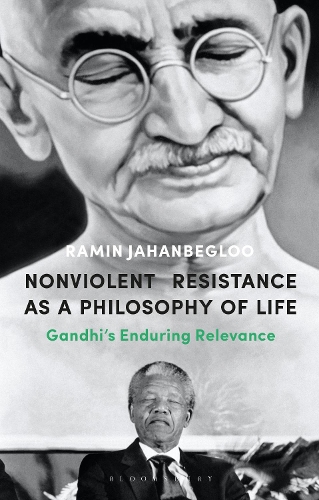
Nonviolent Resistance as a Philosophy of Life: Gandhis Enduring Relevance
(Hardback)
Available Formats
Publishing Details
Nonviolent Resistance as a Philosophy of Life: Gandhis Enduring Relevance
By (Author) Professor Ramin Jahanbegloo
Bloomsbury Publishing PLC
Bloomsbury Academic
11th March 2021
14th January 2021
United Kingdom
Classifications
Tertiary Education
Non Fiction
East Asian and Indian philosophy
Philosophical traditions and schools of thought
303.61
Physical Properties
Hardback
168
Width 138mm, Height 216mm
345g
Description
What do we mean by nonviolence What can nonviolence achieve Are there limits to nonviolence and, if so, what are they These are the questions the Iranian political philosopher and activist Ramin Jahanbegloo tackles in his journey through the major political advocates of nonviolence during the 20th century. While nonviolent resistance has accompanied human culture from its earliest beginnings, and representations of nonviolence in Eastern religions like Jainism, Buddhism and Hinduism are ubiquitous, it is only in 20th century that it emerged as a major preoccupation of figures such as Gandhi, Martin Luther King Jr., Nelson Mandela, Mother Teresa and Vclav Havel. Focusing on examples of their way of thinking in different cultural, geographic and political contexts, from the Indian Independence Movement and US Civil rights and Anti-Apartheid movement to the Velvet Revolution in Czechoslovakia and nonviolent protests in Tunisia, Iran, Serbia and Hong-Kong, Jahanbegloo explores why nonviolence remains relevant as a form of resistance against injustice and oppression around the world. With balanced readings of central players and events, this comparative study of a pivotal form of resistance written by accomplished scholar of Gandhi presents convincing reasons to commit to nonviolence, reminding us why it matters to the development of contemporary political thought.
Reviews
In this important book, Jahanbegloo describes seven major recent practitioners of nonviolent resistance. As a practitioner himself, he survived solitary confinement. But here he narrates the role within resistance of love, reconciliation and compassion. Although nonviolence cannot be total, he argues that the human capacity for it is unlimited. * Sir Richard Sorabji, Honorary Fellow, Wolfson College, University of Oxford, UK *
Timely and compelling, Ramin Jahanbegloos delightfully-written meditation shows with great clarity why violence is humanitys curse on our world, and why the choice of individuals and groups to refuse violence is not just strategically prudent but dignifying, empowering and transformative. * John Keane, Professor of Politics, University of Sydney, Australia, and WZB, Germany *
Author Bio
Ramin Jahanbegloo is Professor and Director of the Mahatma Gandhi Centre for Nonviolence and Peace at O.P. Jindal Global University, India. He is a member of the advisory board of PEN Canada and the winner of the Peace Prize from the United Nations Association in Spain (2009), and more recently the winner of the Josep Palau i Fabre International Essay Prize. He is also the founder of a peace movement called Students for Peace, which has active members in India, Canada and Colombia. His latest book is The Disobedient Indian: Towards a Gandhian Philosophy of Dissent (2018).
